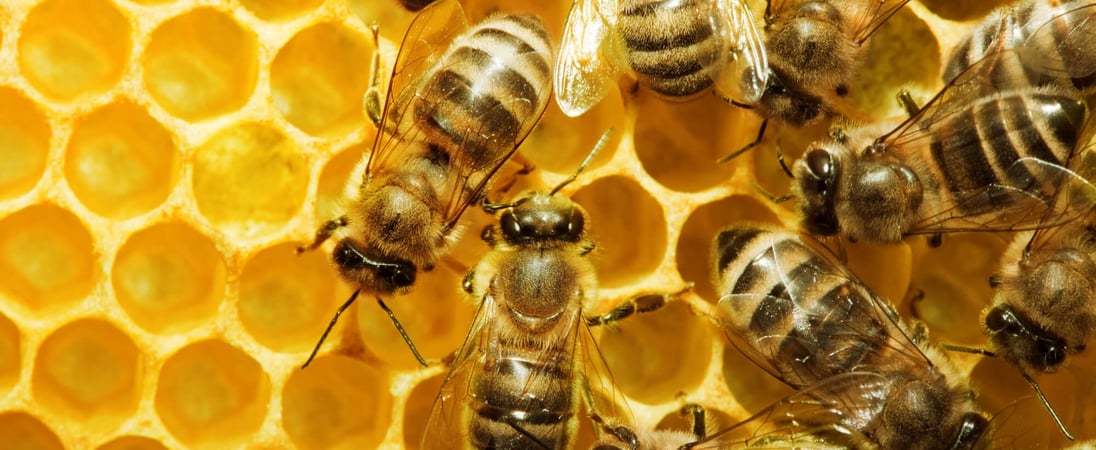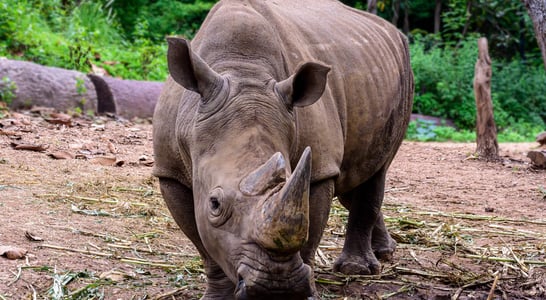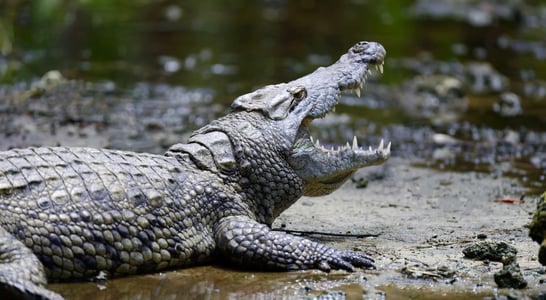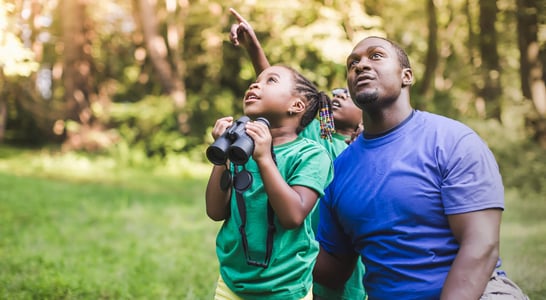
World Bee Day
Support bee conservation by donating or purchasing from companies that work to save these crucial members of the ecosystem, or start your own bee hive.
Lately, the concerns about bees being endangered have become widely noted among people all over the world, but information on how to take action about it has become scarce in this age.
That’s why World Bee Day exists to educate people about the importance of bees and how they can help preserve them for the sake of the future. If you want to help save these fuzzy insects from extinction, then read down below to find out what World Bee Day is about!
How to Celebrate World Bee Day
Support a Conservation Charity
If you want to do more, find a charity that helps towards bee conservation, and donate through there. Many bee charities offer their own merchandise, which goes directly back into their profits, like bee jewelry or clothing.
Why not purchase your own Bee Tee or give your loved ones a unique bee necklace to share the love? Many bee charities also arrange their own events, awareness campaigns, and particular ways of donating, so why not support a charity near you to show support for our buzzing buddies.
Plant a Bee Friendly Garden
Start a garden and place with a full arrangement of fruits, vegetables, and flowers that you know bees would like. Only have limited space? If you have a balcony or terrace, you can buy nectar-bearing flowers and pot them in your available area for both decorative and bee-saving purposes.
Plants like sunflowers, poppy, and our much-loved food favorites like thyme, dill, and fennel are perfect for pollinators. You can even create a pollination station for bees in your garden or outdoor space to benefit from. Make a friendly environment for bees, butterflies, and any local pollinators to help their habitats.
Support Local Beekeepers
Looking to be more proactive about how you purchase your food? Go to a local beekeeper and buy honey from them. You could go for honey and many other hive products. Talking to a local beekeeper will also help you find suitable ways to keep your garden or outdoor space a bee-friendly environment.
Say No to Pesticides
Avoiding harmful pesticides will keep pollinators happy, and if you have to spray anything, doing so in the morning or late at night will ensure that your bees don’t get caught in the crossfire. If you’re lucky enough to have a larger outdoor space that’s filled with wildflowers, keeping part of it preserved will mean that your bees have the perfect natural environment to enjoy.
If you’re looking for a way to help raise awareness of bee endangerment, then share and spread the news about World Bee Day through social media.
History of World Bee Day
World Bee Day corresponds with an important influencer in the pioneering of beekeeping. Anton Janša, who in the 18th century pioneered modern beekeeping techniques in his native Slovenia, was one of the first people to help bring about the importance of bees in the world environment.
Since then, beekeeping has become a vital necessity in the world’s ecosystems and economic systems. However, not many people realize the importance of bees or know how to help save the bees, which led to the announcement of World Bee Day through the United Nations. The original idea came from the Slovenian Beekeepers’ Association and the inaugural event took place in 2018.
The United Nations designated World Bee Day to raise awareness of the importance of bees. Bees are under a continuous threat from human activity, which includes the introduction of invasive insects, pesticides, land-use change, and monocropping practices, which have continuously been destroying bee colonies over time.
World Bee Day helps educate people about the importance of bees and what they do for the environment, which includes how they help grow 90% of the world’s wildflower plants, 35% of the world’s crops depend on bees to grow, and how they help build ecosystems all over the world. With these statistics, the United Nations has created various programs all over the world to increase awareness of protecting bees and what you can do to help this cause.
This day is also open to other pollinators as well as bees, like bats, hummingbirds, and butterflies. Together these essential animals help keep ecosystems healthy and maintain biodiversity. Bees and other creatures also help us fight problems on a global level, like world hunger and helping to adapt to climate change. These fantastic fuzzy creatures help keep our plants and our planet alive.
If you look at bees as creatures, they are a fascinating insect even without all the services they provide for us. For instance, the phrase bee’s knees makes absolutely no sense, because bees actually don’t have knees. Bees also communicate by dancing – can you imagine if humans didn’t talk and only communicated via the medium of dance? If you consider honey as well, it has also been used as an antiseptic and treatment for burns and wounds for centuries.
Bees have been around for thousands of years, and the very first bee found was 100 million years old! Bees might also have been the very first species to decide to go vegetarian. Originally, our fuzzy friends used to eat other insects, but they evolved to eat nectar and pollen instead. Bees have long supported us, humans with honey being a monumental discovery for our ancestors (it must have been tough for them to gather!).
From sweetening food to dressing wounds, we loved honey so much that our children are still named after bees. Names like Melissa and Ali mean bee in Greek and Urdu, showing that across the world, we share a global appreciation for bees.
World Bee Day Timeline
13000-8000 BC
People get honey from wild bees
Enjoying the sought after sweetness of honey and usefulness of wax, people climb ladders to reach the nests of wild bees.[1]
200 AD
Bee hives in Ancient Egypt
With bees that may have been more aggressive, beekeepers approach the hives with shaven heads to prevent the bees from reacting to the perfumed oils used in the hair.[2]
1621
Beehives are sent to the colonies
To help the people of the colonies survive, supplies that include beehives are sent on ships from London to Virginia.[3]
2006
Colony Collapse Disorder is first reported
Beekeepers begin reporting high losses where adult bees literally just disappear from the hive, leaving the queen and immature bees inadequately attended to.[4]
2008
The Secret Life of Bees film is released
Based on a book of the same name by Sue Monk Kidd and set in the 1960s southern US, this movie stars Dakota Fanning as a young girl who runs away in search of her mother.[5]
World Bee Day FAQs
Do bumble bees sting?
While female bumble bees do have stingers, they rarely sting. Stings can be avoided by remaining calm and not provoking them.[1]
How do bees make honey?
Bees make honey by sucking the nectar from flowers, regurgitating it when they get back to the hive, and then reducing the water content by passing it mouth-to-mouth until it turns into honey.[2]
How long do bees live?
Worker bees live from 2-20 weeks, drones from 30-55 days and queen bees 1-5 years.[3]
What do bees eat?
Bees feed on the pollen and nectar that is collected by the foragers.[4]
Are bees endangered?
Studies and records have suggested that bee populations are declining worldwide due to climate change, loss of habitat and pesticides and more.[5]
Also on ...
View all holidaysNational Rescue Dog Day
Wag your tail for rescue dogs! These lovable pups bring joy, loyalty, and unconditional love to every home they enter. Adopt a furry friend and experience the happiness that only a rescue dog can bring.
National Be a Millionaire Day
No, you can’t become a millionaire in a day. But by taking stock of your financial health and taking steps to improve it, you just might get there someday.
National Quiche Lorraine Day
A shortcrust pastry, bacon, eggs, cream, milk, cheese, and a little time in the oven; that’s all it takes to make the delicious and fancy-sounding Quiche Lorraine.
We think you may also like...
National Endangered Species Day
Many magnificent species of animal and insect are at risk of going extinct, so join the cause by volunteering, donating, or spreading awareness of these threats.
Big Garden Birdwatch
With a pair of binoculars and a keen eye, you can spot beautiful feathered creatures, adding joy to your day.








